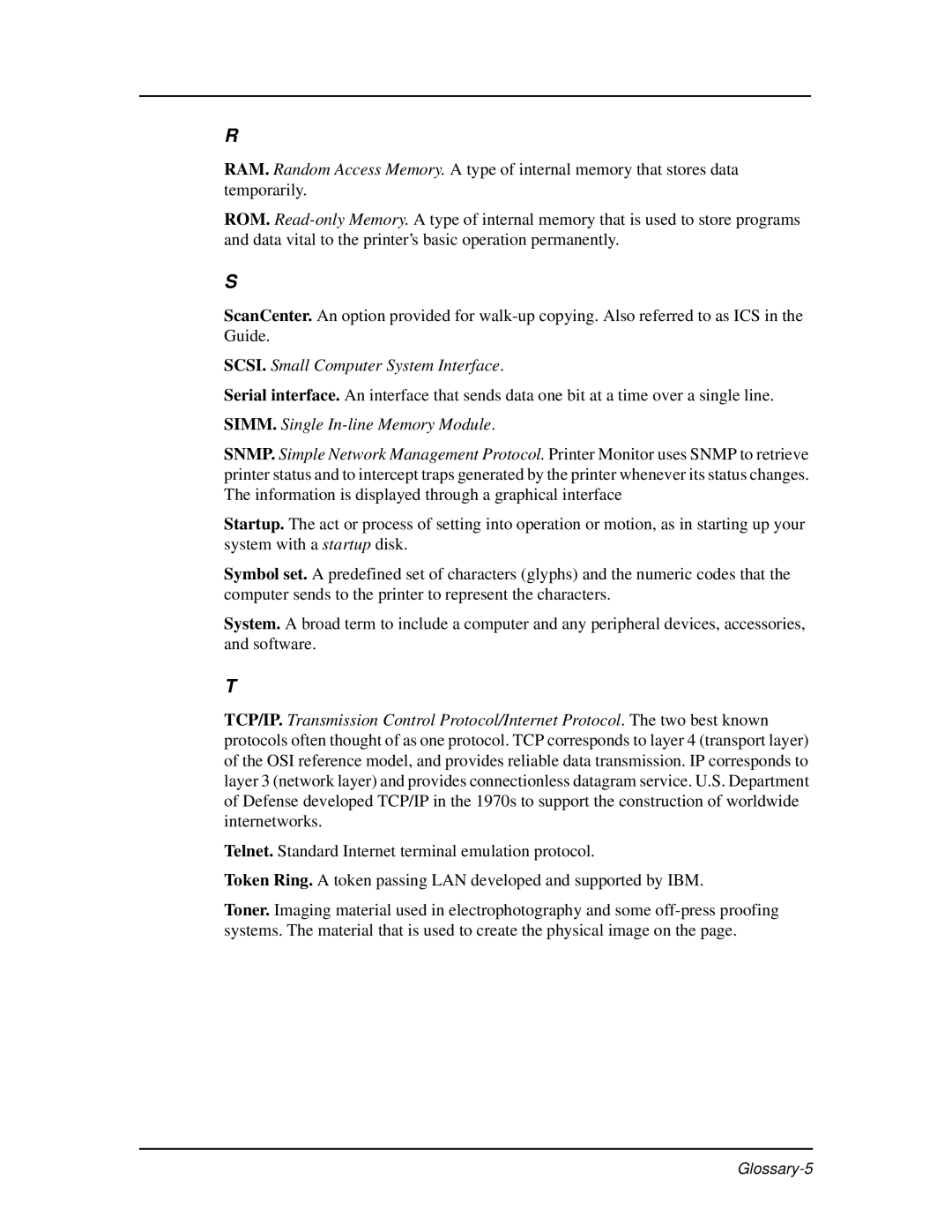
R
RAM. Random Access Memory. A type of internal memory that stores data temporarily.
ROM.
S
ScanCenter. An option provided for
SCSI. Small Computer System Interface.
Serial interface. An interface that sends data one bit at a time over a single line.
SIMM. Single
SNMP. Simple Network Management Protocol. Printer Monitor uses SNMP to retrieve printer status and to intercept traps generated by the printer whenever its status changes. The information is displayed through a graphical interface
Startup. The act or process of setting into operation or motion, as in starting up your system with a startup disk.
Symbol set. A predefined set of characters (glyphs) and the numeric codes that the computer sends to the printer to represent the characters.
System. A broad term to include a computer and any peripheral devices, accessories, and software.
T
TCP/IP. Transmission Control Protocol/Internet Protocol. The two best known protocols often thought of as one protocol. TCP corresponds to layer 4 (transport layer) of the OSI reference model, and provides reliable data transmission. IP corresponds to layer 3 (network layer) and provides connectionless datagram service. U.S. Department of Defense developed TCP/IP in the 1970s to support the construction of worldwide internetworks.
Telnet. Standard Internet terminal emulation protocol.
Token Ring. A token passing LAN developed and supported by IBM.
Toner. Imaging material used in electrophotography and some
